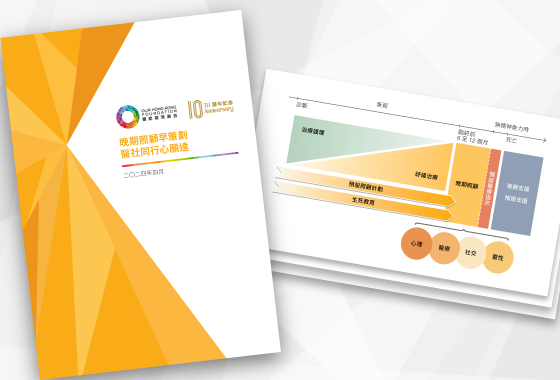Hong Kong’s overwhelmed hospitals show up urgent gaps in primary health care
This article appeared originally in the SCMP on 27 February, 2022.
Authors: Stephen Wong, Legislative Council member, Our Hong Kong Foundation senior vice-president and executive director of the Public Policy Institute and Pamela Tin, assistant research director and head of health care and social development at Our Hong Kong Foundation

Hongkongers are feeling the impact of the Omicron variant in every facet of life. From surging fresh grocery prices and long lines for Covid-19 testing and vaccinations, to overcrowded public hospitals amid heartbreaking scenes of patients camping outside to wait for medical attention, Covid-19’s latest disruption is undeniable.
While the priority should be to win the city’s war on Covid-19, the needs of patients wait-listed for non-urgent services and of chronic disease patients requiring regular follow-up care cannot be ignored.
Temporary and emergency solutions have emerged, with the talk of the town being the new-found reliance on private sector services, including the creation of public-private partnership programmes to offer services paused in the public sector.
We are facing the consequences of failing to institute community-based primary health care efforts such as disease prevention and early identification and management, efforts that would have helped to sustain the health of the public when resources are under strain.
The Hong Kong government has long overseen the slow development of its primary health care, particularly in the community; services such as follow-ups for chronic disease management and health checks are routinely and unnecessarily conducted by specialists or delayed until conditions worsen.
The private sector is responsible for providing roughly 70 per cent of Hong Kong’s primary care services. But given the high quality and low cost in the public sector, Hongkongers with low income and a lack of insurance or funds are deterred from accessing private primary care services outside specialist and hospital settings.
There are public-private partnerships such as the general out-patient clinics (GOPC PPP). But many doctors are discouraged from recommending or taking part in them because of the high patient load and limited patient interaction time in the public sector, and a perception of increased workload.
The development of community-based primary health care is inadequate, and the negative consequences have become particularly evident. A good system of community-based primary care would have ensured that patients with chronic disease risks and diagnoses are connected to providers outside the hospital setting, who would offer routine guidance on health maintenance and improvement.
A better-established system with clear care protocols could have addressed concerns over vaccination complications, reduce postponed diagnoses and treatments and, importantly, alleviate confusion, fear and stress among those requiring non-urgent and/or regular health care.
While the latest Covid-19 wave and subsequent strain on the health system cannot be reversed, action can be taken to mitigate the damage from a worsening wave or future health catastrophes, and to relieve the pressure on the hospital system and specialist care.
The government urgently needs to continue exploring ways to divert Hospital Authority patients in non-urgent and/or stable condition towards consultations and follow-ups with primary care providers, such as general practitioners and family doctors, in their communities. The government may base new protocols on existing programmes such as the GOPC PPP and other primary care public-private partnerships.
We believe that the proposed shift would offer benefits and relief to patients, doctors and the health system alike.
The first set of beneficiaries are the patients who may gain an additional avenue of care, especially if they are weary of visiting hospitals during the pandemic. The provision of care within the community via general practitioners may help patients improve and maintain their chronic conditions – a critical anti-pandemic measure for ensuring public health and safety.
Through the use of primary care services during the pandemic, patients may also gain more experience and insight into the role of community-based primary care and this may enable a stronger uptake of community-based medicine for routine care.
Doctors and care providers are among the second set of beneficiaries. Recent reports show that at least 90 per cent of the Hospital Authority’s isolation beds are in use, with many more newly diagnosed Covid-19 patients uncertain about how to access treatment or where to go for medical advice.
Re-routing patients towards primary care and out of hospitals would extend a much-needed lifeline to the Hospital Authority and health system at large, helping to divert patients out of overwhelmed accident and emergency departments.
It would reduce the overstretched workload of public sector doctors and ensure a stable caseload for private doctors, allowing them to help share the burden of growing health care demands and play a key role in Hong Kong’s Covid-19 strategy.
Additionally, connecting patients with family physicians may improve patients’ health literacy and give them more resources for combating the pandemic within their homes and communities.
While tackling the pandemic and rising case rate demands urgent action, anti-pandemic measures cannot be disentangled from primary health care. Sadly, the development of primary health care was not a core focus of this year’s government budget and further inaction will only fuel the latest wave.
It is through strengthening community-based primary care that we can build a more robust health system in the long term. The time for action is now.



